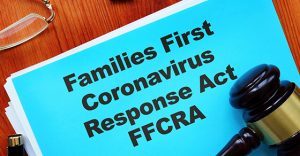
A federal trial court recently invalidated several provisions of the U.S. Department of Labor’s (DOL’s) temporary regulations implementing the paid leave provisions of the Families First Coronavirus Response Act (FFCRA). The decision marks an important development in the implementation of the law.
Pandemic relief
As you may recall, the FFCRA amends the Family and Medical Leave Act to require certain employers to provide paid emergency childcare leave. Specifically, leave must be provided to employees unable to work or telework because of a need to care for a child because a school or place of care is closed, or a childcare provider is unavailable, due to COVID-19. The FFCRA also requires certain employers to provide 80 hours of paid sick time to full-time employees who are unable to work or telework for specified COVID-19-related reasons. Part-time employees need to be provided paid sick leave for the average number of hours worked over a two-week period.
Case at hand
In New York v. U.S. Dept. of Labor, the state of New York argued that the DOL regulations unduly restrict FFCRA paid leave and challenged four features:
- the “work-availability” requirement,
- the definition of “health care provider,”
- the intermittent leave provisions and
- the documentation requirements.
Agreeing with the state, the court invalidated:
- The restriction that an employee may not take FFCRA paid leave if the employer doesn’t have work for the employee (for example, because the employee is furloughed),
- The definition of “health care providers” (whom employers may elect to exclude from leave benefits), which was determined to be overly broad,
- The requirement that an employee secure employer consent for intermittent leave, and
- The requirement that the employee provide documentation to the employer (indicating, for instance, the reason for and duration of the leave) before the leave begins.
The remainder of the regulations, including the ban on intermittent leave for certain qualifying reasons and the substance of the documentation requirements, aren’t affected by the ruling.
Uncertainty remains
The court’s ruling in New York creates uncertainty for employers seeking to comply with FFCRA’s paid leave requirements. Among other things, it’s not clear whether the decision will be applied nationwide or retroactively. As of this writing, employers must take a wait-and-see approach to see whether the DOL appeals and requests a temporary injunction and/or drafts new regulations. Our firm can provide further information on the decision and keep you updated on further developments. © 2020

